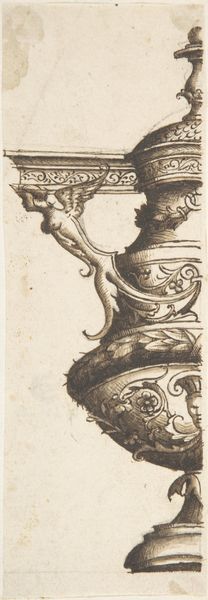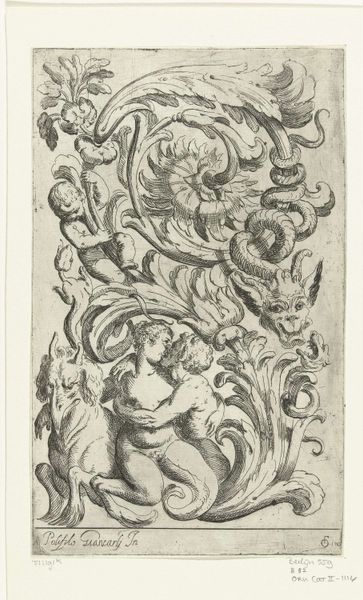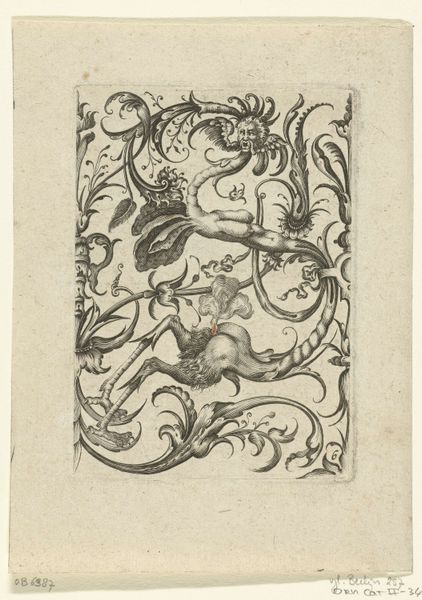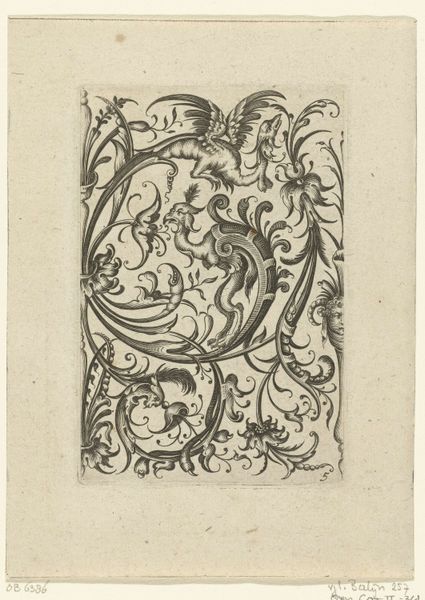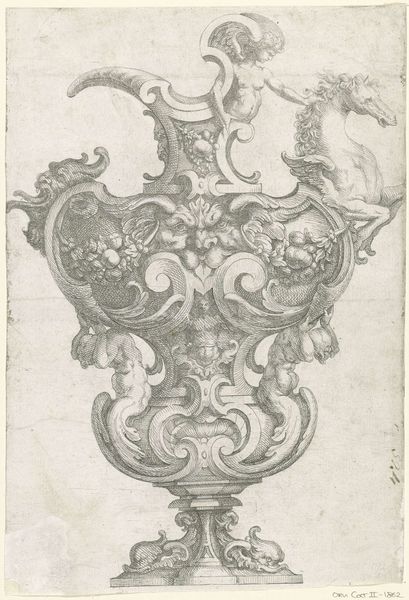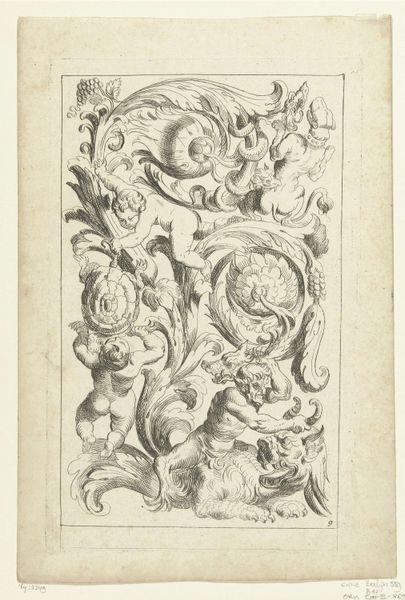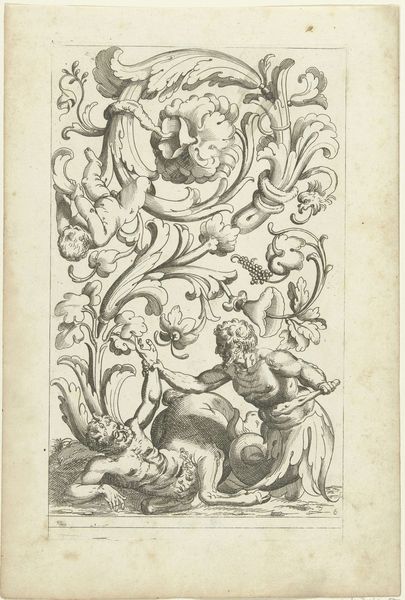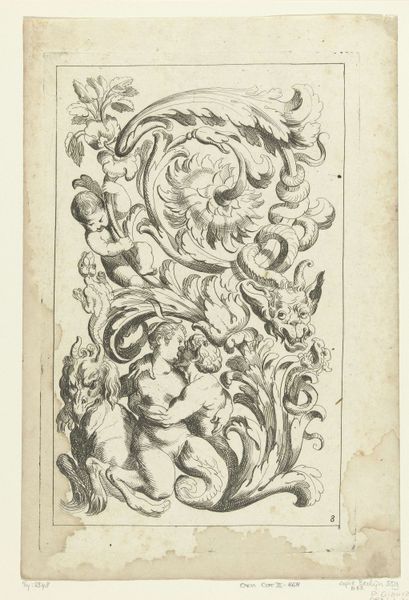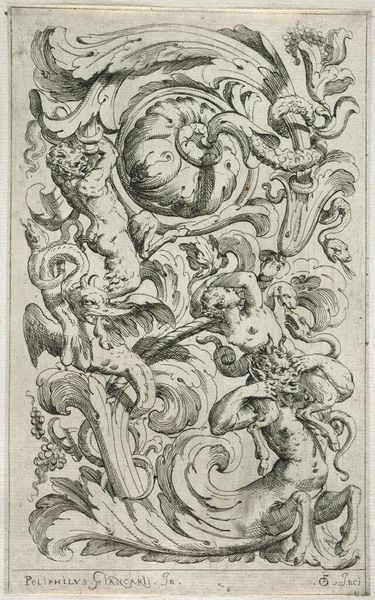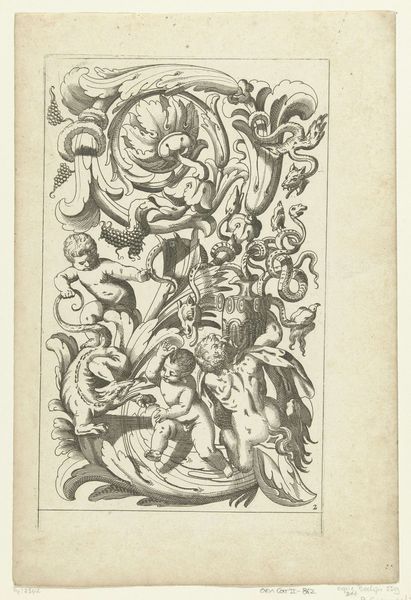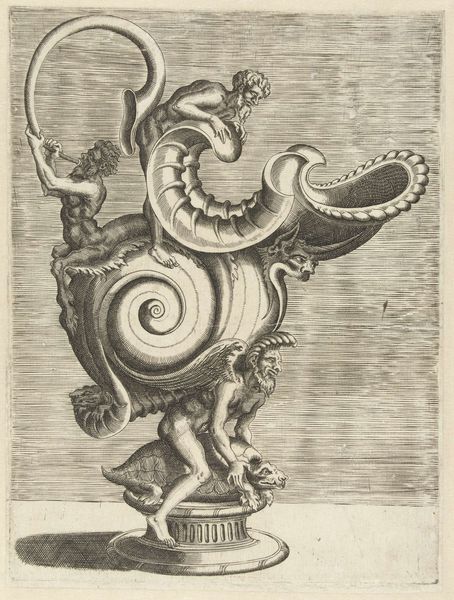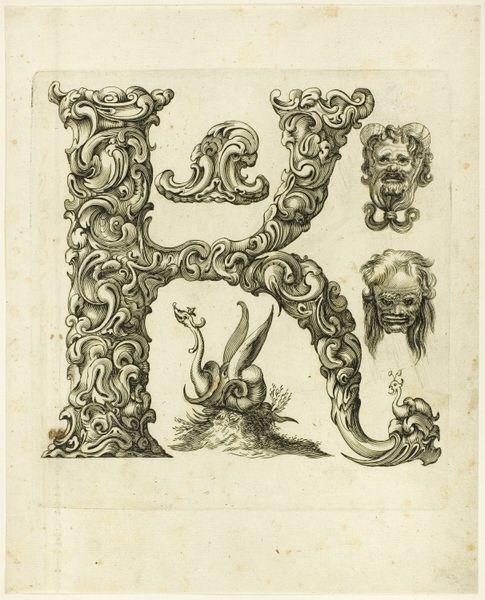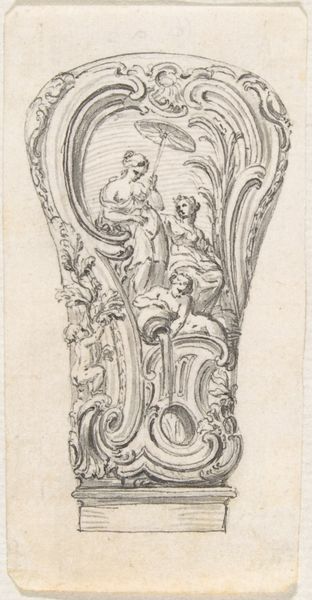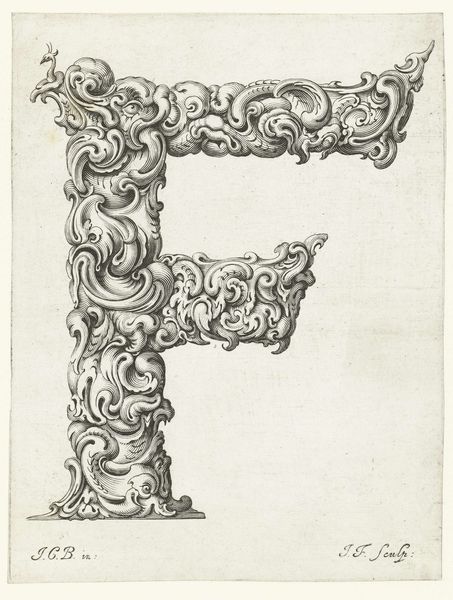
drawing, print, intaglio, ink, engraving
#
drawing
# print
#
pen sketch
#
intaglio
#
old engraving style
#
figuration
#
ink
#
line
#
northern-renaissance
#
engraving
Dimensions: height 85 mm, width 62 mm
Copyright: Rijks Museum: Open Domain
This intriguing fragment was crafted anonymously using etching, a printmaking technique with a long history. The process begins with a metal plate, coated in a waxy, acid-resistant ground. The artist then scratches an image into this ground, exposing the metal beneath. When the plate is immersed in acid, the exposed areas are "bitten," creating recessed lines. The plate is then inked, the surface wiped clean, and pressed onto paper, transferring the ink from the etched lines to create the print. The remarkable detail here, in the rendering of the mythical figures and ornate foliate designs, speaks to the skill required. Prints like this were relatively inexpensive to produce and circulate widely, often used as source material in other crafts. Etching, therefore, played an important role in the distribution of images and ideas in its time, connecting it to wider issues of labor and consumption. Appreciating the labor and processes involved challenges traditional distinctions between fine art and craft.
Comments
No comments
Be the first to comment and join the conversation on the ultimate creative platform.
